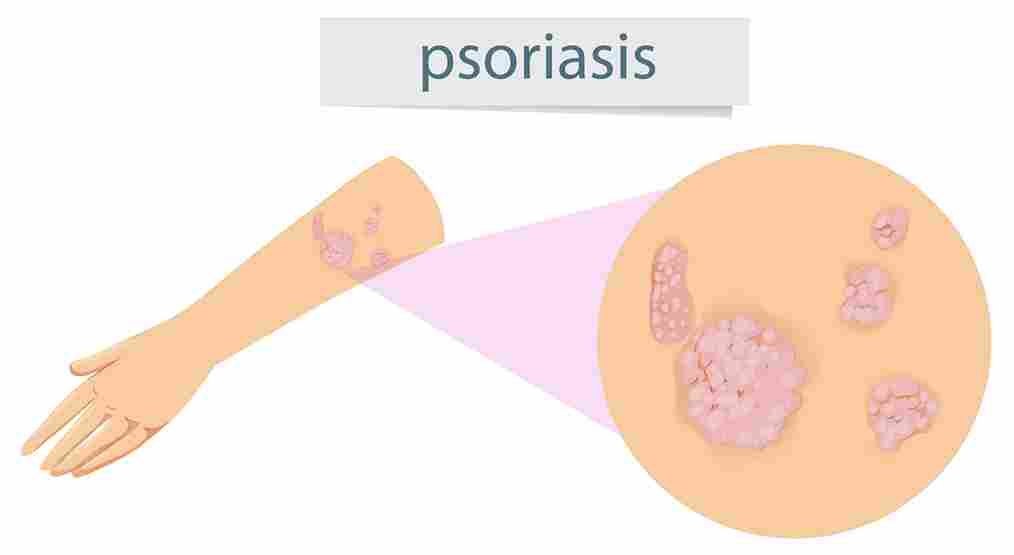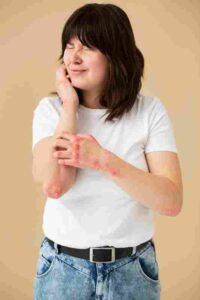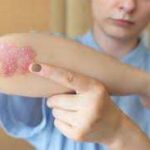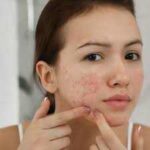Are you looking for the best treatment of psoriasis in Dharwad for different types of psoriasis? Here is a guide for you!
Psoriasis is caused by the dysfunction of the immune system, which results in inflammation in the body. Those inflammations are easily visible in the form of raised plaques, which look different on different skin types and scales. There are more than six types of psoriatic conditions. A person diagnosed with psoriasis experiences itchiness and a burning sensation on the inflamed and infected area.
Along with physical health, psoriasis affects mental health too. This skin condition can be very challenging for people to live with.
Treatment of psoriasis is done to stop the rapid growth of the skin cells and to remove scales. Psoriasis treatments vary depending on the type and location of psoriasis. It also depends on how severe the psoriasis is and how responsive it is according to the previous psoriasis treatments. Some of the psoriasis treatments include topical therapy, phototherapy, and oral or injectable medications.

Different types of psoriasis
Different types of psoriasis appear differently depending on the location of the body. Let us discuss some of the psoriasis types, symptoms, and psoriasis treatments.
1. Plaque psoriasis
The most common form of psoriasis is plaque psoriasis or psoriasis vulgaris. It causes dry, itchy, raised skin patches known as plaques covered with white scales. Plaque psoriasis usually appears on the knees, lower back, scalp, and elbows. On white skin, the patches are often red and pink with white scales, whereas, on dark skin, the plaque appears brown with grey scales.
Doctors use topical treatments and systematic medications for psoriasis treatments that help slow down skin cell growth and ease inflammation.
2. Guttate psoriasis
Guttate psoriasis is more common in children and adolescents than in adults. It appears as a small, round spot called a papule. It mostly appears on the legs, arms, ears, and torso.
Psoriasis treatments for guttate include phototherapy and oral treatments. The best treatment plan is based on the severity of the disease and medical history.
3. Pustular psoriasis
It is a rare form of psoriasis that appears as white and yellow pus-filled painful bumps. Pustular psoriasis may be surrounded by inflamed or discoloured skin. The pus in pustules is caused by inflammation and is non-contagious.

Pustular psoriasis is of different types according to the locations where it appears. There are no specific treatments for pustular psoriasis, as doctors recommend treatment plans based on the severity and locations of the disease.
4. Inverse psoriasis
This type of psoriasis is commonly found on skin folds and affects areas including the armpits, groin, genital area, buttocks, and under the breasts. Inverse psoriasis is also known as intertriginous psoriasis, which occurs mostly in overweight people and those with deep skin folds.
Symptoms of this type of psoriasis appear as red lesions in body folds that are smooth and shiny. Many people with inverse psoriasis can also develop other types of psoriasis at the same time on other body parts.
5. Erythrodermic psoriasis
Erythrodermic psoriasis is a rare type of psoriasis that affects nearly the entire body and is life-threatening. It disrupts the normal body temperature and fluid balance. This may lead to oedema which is swelling due to fluid retention in the feet or ankles. People diagnosed with this condition are at a high risk of pneumonia, infections, and heart failure.
Symptoms of erythrodermic psoriasis include severe itching, redness, a burning sensation, and large-scale skin shedding from the body. Treatments used in treating erythrodermic psoriasis are focused on getting the body temperature and fluid balance back to normal.
Conclusion
Psoriasis is a skin disease that affects the immune system of the body and produces skin cells at an increased rate. There are different types of psoriasis, which include inverse psoriasis, guttate psoriasis, and pustular psoriasis. These psoriasis types possess mild to severe symptoms in an infected body.
Psoriasis treatments mostly include ointments, systemic medications, and phototherapies. Psoriasis can also be managed with herbal remedies and a healthy diet.
The Ayursparsh Clinic & Panchakarma Center in Dharwad is well-known for treating skin diseases, including psoriasis, eczema, and acne. To get your psoriasis treatment plan, you can contact Dr Rashmi Patil.




